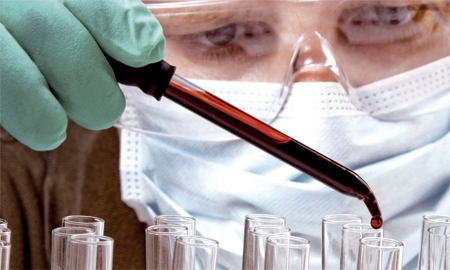Although perhaps best known for its oil industry, in recent years Algeria has considerably expanded its pharmaceutical sector, by opening doors to foreign investors and attracting multinational companies.
“The market has increased six-fold in value in just one decade,” explains Boumediene Derkaoui, CEO of leading Algerian pharmaceutical company
SAIDAL. “It certainly gives you an idea of its huge potential for growth.”
He adds that it is important to note that amongst the African nations, the Algerian pharmaceutical industry is the second largest, totaling more than $2.5 billion and estimated to be worth $8 billion by 2015.
This sudden growth is mainly due to the liberalization process that started in the early 1990s, which allowed international and private Algerian companies to enter the market. A company such as SAIDAL, for example, used to be completely government owned, but in the late 1990s was opened up to private investors. Now corporate and individual investors own 20% of the company. SAIDAL also has partnerships with French company Sanofi Aventis and American multinational Pfizer.
Another strategy implemented by the Algerian government includes its shift toward nationally produced drugs. “It is estimated that domestic production accounts for between 32 and 35% of the Algerian market,” says Mr. Derkaoui. “The objective of the public authorities is to double that and reach at least 70% national production by 2014-2015.”
Since 2005 the government began allowing international companies to set up manufacturing facilities within Algeria to help reach this goal. As a result, two Middle Eastern pharmaceutical companies, Saudi Arabia’s Julphar and Kuwait’s KIPCO Asset Management Company (KAMCO), have already decided to build manufacturing plants.
Saudi Arabia will work with Algeria’s Ministry of Health investing $28 million to create an intravenous fluid facility while KAMCO will invest $380 million toward drugs aimed at treating cancer.
This interest in the Algerian pharmaceutical sector has also spread to the United States. The willingness of the Algerian government to move its pharmaceutical and medical industry forward was evident by a two events that took place in 2011.
First, Algeria hosted in June the first USA-Algeria Health Forum & Expo in Algiers on research and development in the field of pharmaceutical biotechnology. Prominent companies such as Pfizer, Merck and Zeneca, among others, attended the meetings to discuss the pharmaceutical sector and biotechnology in Algeria, while the latest technology in the pharmaceutical medical field was on exhibition. Medical equipment suppliers even provided attendees with hands-on experience.
Under this forum, a memorandum of understanding was signed between the two nations, paving the way for future collaborations.
The second event to take place, and further consolidate the biotech sector’s buoyant growth in Algeria, was a two-day “Innovative Pharmaceu-tical Study Tour” of Boston and Washington DC, organized by the U.S.-Algeria Business Council (USABC).
The 30-strong delegation from Algeria, led by Health Minister Djamel Ould Abbes, made technical visits to laboratories and universities and conducted meetings with leading decision makers from international pharmaceutical companies, public institutions and regulatory agencies.
During the tour, Algeria’s Health Minister met with his American counterpart, Kathleen Sebelius, in what was the first meeting of its kind between an active Minister of Health and a U.S. Secretary of Health and Human Services.
Algeria’s most recent public incursion into the biotechnology field was at the BIO International Convention, held in Boston this past June 18-21. At the invitation of James Greenwood, President and CEO of Biotechnology Industry Organization (BIO), Algeria participated as a guest of honor, a role that enabled it to promote investment in the North African nation to an international audience.
This has been the first time Algeria participated in the convention and to commemorate the event, it officially launched the Algeria 2020 initiative – an investment and development program focused on the health sector, developed by the Minister of Heath with a team of international experts.

0 COMMENTS